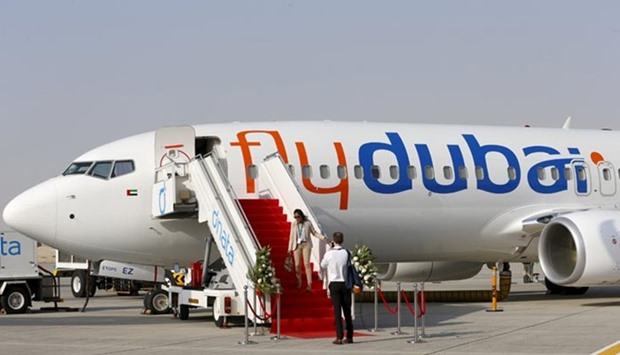The chief executive of flydubai expects another difficult year for the low-cost carrier as tough economic conditions put pressure on yields.
The airline this month reported a 60% drop in 2015 net profit to 100.7mn dirhams, blaming a stronger US dollar and tough market conditions.
These factors pressured its overall Revenue Passenger Kilometre yield - a key industry measure of the average fare paid by customers to fly one kilometre - and this is expected to continue in 2016.
"This is going to be a difficult year because of the overall economic outlook - there might be challenges with yield," said Ghaith al-Ghaith on the sidelines of a business conference on Thursday.
The United Arab Emirates dirham is pegged to the dollar, which has been recently trading at multi-year highs against a number of global currencies, and this strengthening makes tickets booked in other currencies comparatively more expensive.
Passenger numbers from Russia to Dubai fell 22% in 2015, for example.
Ghaith said the carrier was trying to boost traffic from its Dubai hub to Commonwealth of Independent States countries, even if there was less inbound traffic from those countries.
The yield in 2015 was also pressured by the airline's fuel hedging policy, which covered 41% of its fuel requirements, as oil prices continued to slump.
Ghaith said the airline would continue to hedge fuel based on opportunities on contractual instruments. The carrier said in its 2015 results it had 16% of its fuel requirement hedged for the next 24 months.
Fuel hedging is a contract that airlines use to reduce exposure to volatile and potential rises in fuel costs. If the oil price falls below the hedged level, though, the airline has to take an accounting loss against the difference.
The biggest industry beneficiaries of an oil price slump in the last two years have been airlines with no hedging policies, such as Dubai's flagship carrier Emirates, which posted a 65% jump in first-half profits in November.

